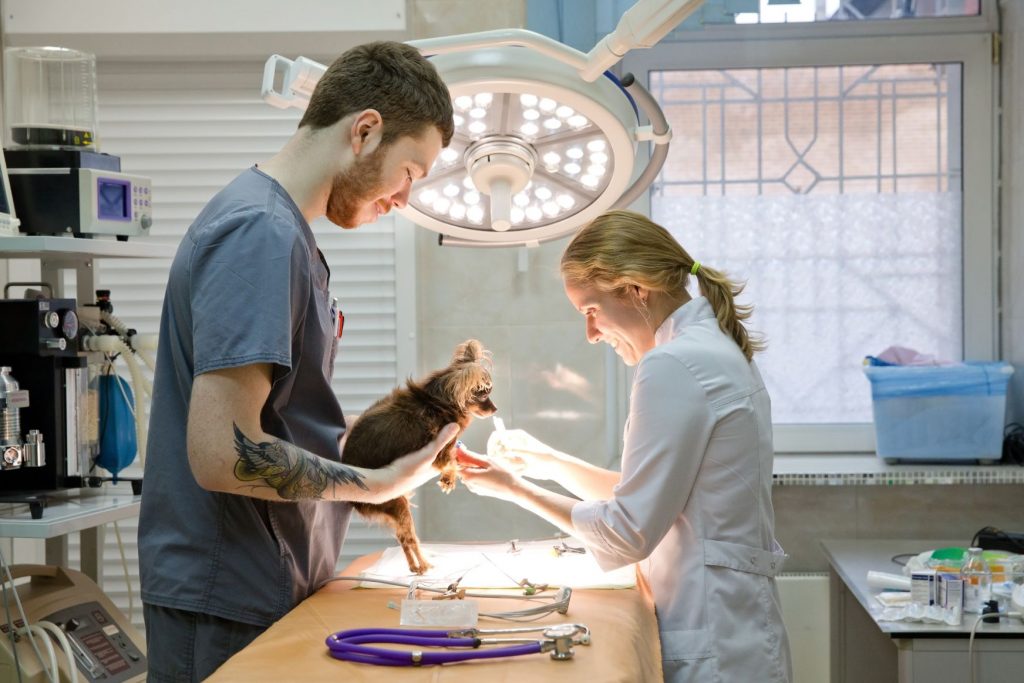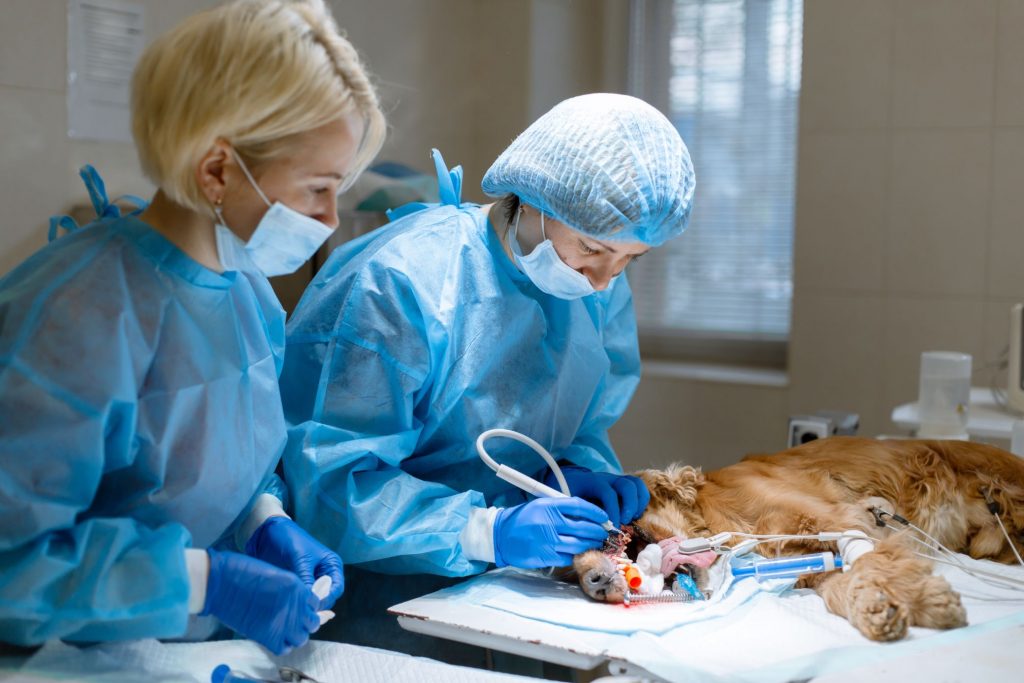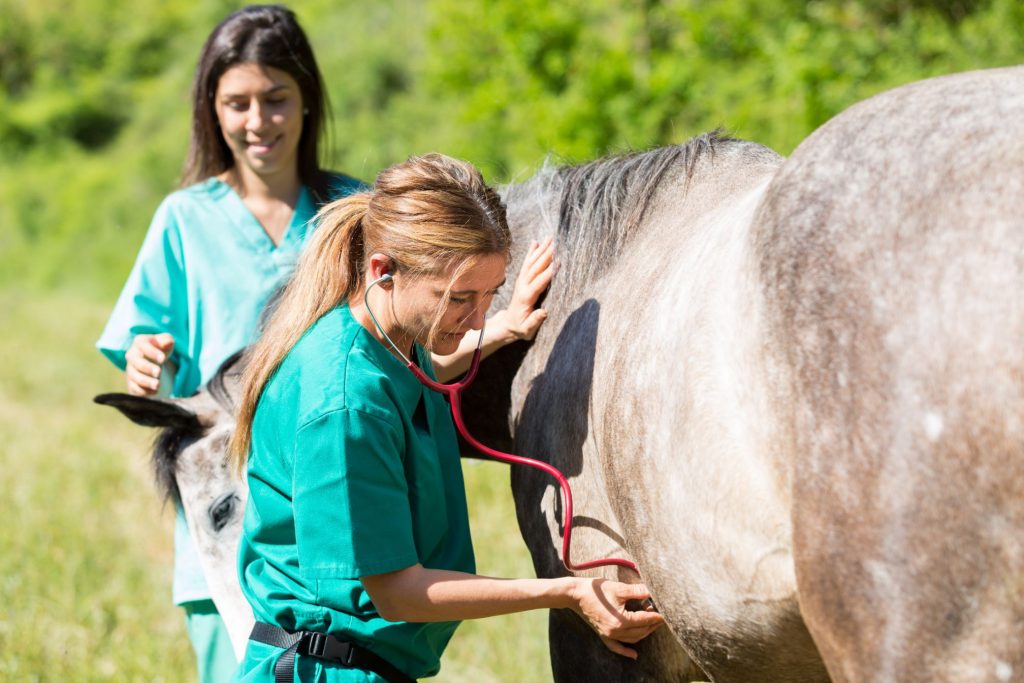
According to the Bureau of Labor Statistics, the demand for veterinary technicians is expected to grow by 19% from 2018 to 2028. This rate of demand is much higher than for most career paths, which promises a stable career for anyone who is interested in the field.
Vet tech jobs are also ranked as one of the most popular careers in healthcare support. Why is this?
Well, there are a number of unique and compelling benefits to this career path, besides the high job demand. Yes, we’re talking about purring, paws, and the occasional nehhhhs.
Read on to find out what these are, as well as whether or not a vet tech career is for you!
Before we go any further, what is a vet tech?
Vet techs, or veterinary technicians, are qualified professionals who, among other things, act as assistants to veterinary doctors. A veterinary technician may also work in areas such as laboratory testing positions and animal/pet product research and development.
Some of the main job roles of a vet tech include:
Vet techs typically assist vets in much the same way the nurses assist doctors, but in this case in the veterinary environment.

Vet tech careers are highly accessible because they require shorter degrees than many other medical roles.
The veterinary technician field is one of the medical careers that do not require many years of training, with the requirement being just a two-year specialized associate degree, which can in some cases be completed in an accelerated format in even less time.
This is great if you are in a hurry to get working and do not have the time or resources to sink into a four-year degree. This is particularly ideal if you are determined to maximize your work-life-study balance.
It does not take that many years of training to gain your certification as a vet tech, and you will not be stuck in a boring repetitive job at the end of it either.
The typical role of a vet tech is highly dynamic, and no two days are the same. While there are some routine tasks associated with equipment and procedures, each animal case is different and offers opportunities for experience, learning on the job and some excitement.
Besides the interaction with the animals, vet techs often handle a lot of the interactions with pet owners as well. This is ideal if you find working with both animals and people to be stimulating.
One of the greatest benefits of a vet tech career is the level of career fulfillment the job offers.
Being a vet tech means that you will be tending to the health of animals on a daily basis, and in some cases saving their lives, or delivering new lives into the world.
If you are an animal lover, then these roles hold promise to be highly fulfilling and purpose-giving. Understandably, easing the suffering of animals is an engaging and rewarding role for most people. However, it should be mentioned that sometimes the role of a vet tech is to comfort an animal patient or their owner when the outcome is not favorable. This can be emotionally challenging.
Another aspect of this is that as a vet tech, you will likely be surrounded by like-minded people who also care for and love animals. This can create a great sense of community, both with coworkers in your practice and with pet owners with whom you engage.
One of the things that makes a profession rewarding is ongoing learning and stimulation. Medical careers, in general, provide this, and vet tech jobs are no exception.
When working as a veterinary technician, you will be learning from each new case that comes into the practice. Additionally, the industry is also always developing new methods of treatment, new techniques, and new equipment.
What’s more, if you have a keen interest in animals and how they respond to you, you will also be continuously learning how to refine the way you handle and communicate with them.
Guess what? Being a vet tech is not only emotionally rewarding, it also provides decent compensation.
Starting salaries for vet techs typically work out at around $12 per hour. The average hourly rate is about $15, nationally. However, your pay and benefits will vary depending upon where you practice, the location of the practice, and your experience. Expect higher pay in big cities, for example.
Additionally, with extra training and experience, you can expect to earn up to $21.50 or more, depending on how experienced you are and where you are located.
At the same time, depending on what packages you are offered, you will also enjoy things like health insurance, dental insurance, life insurance, disability insurance, retirement plans, and paid-for training. Some veterinary practices even assist staff with discounted care and supplies for their pets.

If you want to up-skill, up-qualify, and potentially increase your salary as a vet tech, there is no shortage of room for opportunity in specialized veterinary technician careers.
Once you have initially qualified, and have some work experience, you can choose to take a variety of courses that will enable you to add to your existing knowledge or to specialize in an area that you enjoy.
Some of these specialized roles include:
Vet techs that specialize in veterinary nutrition assist with the management of animals’ and pets’ diets. If nutrition is your thing, and you love animals, then this might be a good area in which to specialize.
Veterinary dental techs conduct dental procedures, care, and cleanings for animals, under the supervision of a veterinarian.
Veterinary surgical technicians specialize to help veterinarians with surgeries. They also oversee animal care before and after surgery.
If you love the behavioral side of animal care, then this might be an ideal specialization. Veterinary behavioral techs work with animals to monitor and make improvements to behavioral issues.
Clinical pathology vet techs undergo additional qualifications to specialize in the analysis of animal body fluids for the purpose of diagnosis.
If you cope well in emergencies, you can also consider specializing to become an emergency and critical care veterinary technician. These vet techs are the ones who handle emergency cases where animals have suffered severe trauma and require emergency treatment.
Be aware that for this specialization you might be required to work nights, weekends and/or holidays, as most emergency care centers are open 24/7/365.
If you enjoy caring for horses, another area of specialization to consider is becoming an equine vet tech. Equine vet techs are specifically qualified to assist equine veterinarians. If you choose this specialization you can either work in an animal hospital or take a position that requires you to travel to farms that are in need of veterinary services.
If you want to diversify your vet tech career and get out of the clinic, you can also choose to specialize in becoming a veterinary technologist. This area involves working in diverse environments and undertaking things like:
If you want to be able to work in a number of different roles or environments, then this specialization might be an option to consider.

If you love animals—and dread a repetitive mind-numbing job with no room for growth—a vet tech career path might be a great option to consider.
If you have always been interested in veterinary science, then becoming a vet tech is a smart niche career within the veterinary sector. At the same time, if the idea of a veterinary career is new for you, perhaps this guide has sparked your interest to explore it a bit further.
Before you commit, however, also be aware that the life of a vet tech is not always purring and tail wagging. Vet techs typically spend all day on their feet, they handle a lot of responsibility and have to deal with the stress and unpredictability of animals.
Do you think that you are cut out to handle and love the job?
If becoming a vet tech sounds like your dream job, then check out our veterinary technician associate degree program and contact us today.
More on a Vet Tech Career